Despite Guardrails, Trump Does What He Wants
Rolling Stone Co-Founder Apologizes:
Couldn’t Find ‘Articulate’ Enough Blacks, Women
After 15 Years, Mexican Reporter Wins Asylum in U.S.
A Beyoncé Reporter? What About Covering City Hall?
HBCUs Receive $124 Million More to Upgrade
MLK50 Awarded $1 Million in Grants in One Week
Three See ‘Casual Ageism’ in Evaluating Biden
All Should Know Journalist Jovita Idár’s Story
Letter: Criticism of Welker Is Factually Wrong, Overly Harsh
Short Takes: Byron Allen and Disney, CBS and the Associated Press; Maria Ressa; Max Gomez; Black Local News Fund; ‘1619 Project’ inspires Kansas; Smithsonian’s ‘racial brain collection’; journalists’ diversity and Linda Thomas-Greenfield; Derrick Z. Jackson, Rue Mapp and John Kruse; Lawrence Jones; Warren C. Dews Jr., John Sotomayor and Benet J. Wilson; “Prisoncast” project;
Jamilah King; Charles L. Blockson; Tamron Hall; Herbert Lowe; Hasan Minhaj; Egyptian journalist’s sentencing; South Korean news outlet raided; arrest of Democratic Republic of Congo journalist; “one of the darkest and most violent periods for independent journalism in Nicaragua”
Support Journal-ismsDonations are tax-deductible.
New York Times chief White House correspondent Peter Baker told Kristen Welker after her “Meet the Press” interview with Donald Trump, “I was struck by how defiant he is. Defiant of you, defiant of the system, defiant of facts, right? He’s just a bulldozer, shoveling falsehoods and lies throughout your interview, and you’re – you’re fact-checking him all along the way. But he is creating a different reality that has been successful for him so far in – in – in – in leading the Republican nomination fight.” (Credit: YouTube)
Despite Guardrails, Trump Does What He Wants
Television writers called Kristen Welker’s historic debut as “Meet the Press” moderator Sunday a no-win situation for the veteran journalist and first person of color in the role. No matter how many precautions NBC took — pre-recording the interview to give the network time to fact check the first and only guest, former president Donald Trump — they would never be enough, the writers said.
“Treating the former reality TV star like any other presidential candidate or victor before him assumes that he’s playing by the same set of rules as his predecessors,” Lorraine Ali wrote for the Los Angeles Times. “News flash: He’s not.
“One storming of the U.S. Capitol and four indictments later, it’s clear that interview dynamic that ‘Meet the Press’ has employed since Harry Truman was in office does not work in 2023. At least for folks who would actually like to see a substantive conversation — or grilling — of past or future leaders.”
Corbin Bolies wrote for the Daily Beast, “Welker herself attempted to head off the inevitable criticism during the broadcast. ‘He is the former president,’ she noted to a panelist. ‘He’s facing four indictments, as journalists just set the scene, the backdrop why there is still news value and value for the public to hear from him.’
“Trump is indeed the former president, and Welker is an established professional who can conduct an inquisitive interview. Perhaps current President Joe Biden would have been a better interview subject for her first episode as Meet the Press moderator, as they at least would have been able to start from the same set of facts.
“But since the White House declined to make Biden available, she was left with the Trump train wreck.”
NBC issued a stream of news stories to demonstrate that Trump did indeed make news. “Here are 11 top moments from Trump’s ‘Meet the Press’ interview,” read one: “Trump tells his party to drop pushing abortion bans with no exceptions,” “Trump says he is not afraid of going to prison,” and “Trump says he likes democracy, just not how the U.S. system currently works,” were three of the moments.
When Welker asked, “You called some of your outside lawyers, you said they had crazy theories. Why were you listening to them? Were you listening to them because they were telling you what you wanted to hear?,” Trump responded, “You know who I listen to? Myself. I saw what happened. I wanted that election, and I thought that the election was over at 10 o’clock in the evening.”
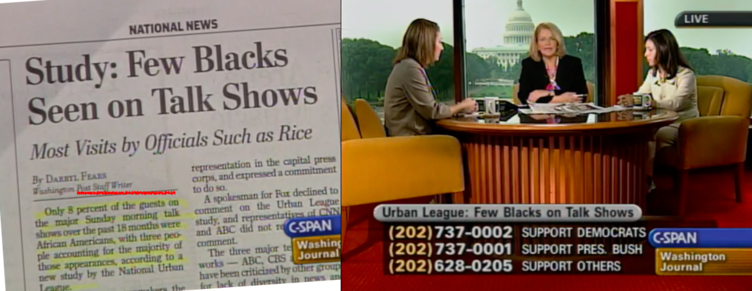
The National Urban League’s “Sunday Morning Apartheid” report in 2005 found that just 8 percent of more than 2,800 guests on the Sunday morning talk shows were Black.
Ted Johnson observed for Deadline, “The exchange may undermine a defense by Trump’s attorneys, who have been leaning into the idea that he was relying on legal advice as he pursued efforts to overturn the election results.”
Apart from the visuals, Welker’s race — her mother is Black and her father white — hardly entered the conversation. One would be hard-pressed to find African Americans commenting on Welker’s performance except on social media. Race did not enter the Trump conversation. In her closing remarks, Welker said, “It is an incredible honor to be sitting in this chair, and I feel the huge responsibility it carries. I also want to recognize all of the women, all of the people of color who’ve been pathfinders to make this moment possible as well as all of the journalists who have mentored me along the way.”
Welker went on to reference NBC’s Andrea Mitchell — a pioneer among female journalists — and the first moderator and co-founder of this broadcast, Martha Rountree.
But media diversity advocates and African American members of Congress such as Rep. Maxine Waters, D-Calif., should not be overlooked.
In 2010, as a proposed $30 billion merger of cable giant Comcast and NBC Universal was pending, Black members of Congress scolded NBC about its insufficient diversity, prompting the network to declare that “from interviews with political newsmakers to our roundtable discussions, ‘Meet the Press’ is committed to having a more diverse group of voices on the show whose opinions and expertise reflect, not just the news of the day, but the cultural, economical and political landscape of our country.
The Comcast merger was approved, and following a string of reports such as the National Urban League’s “Sunday Morning Apartheid,” in 2005, “Meet the Press” kept its promise.
- Ari Berman, Mother Jones: The Mainstream Media Still Hasn’t Learned Anything About Covering Donald Trump
- Michael Calderone, Politico: Will Sunday shows ever change? (Jan. 10, 2010)
- Darryl Fears, Washington Post: Study: Few Blacks Seen on Talk Shows (July 31, 2005)
- Bill Goodykoontz, Arizona Republic: It’s time to stop giving Donald Trump air time. Kristen Welker’s interview proved it
- Ellen Ioanes, Vox: Trump, on Meet the Press, shows he still has no policy plans
- Andrea Mitchell, Washington Post: Women in journalism pass another milestone
- Oliver O’Connell, the Independent: New ‘Meet the Press’ host Kristen Welker defends against Trump interview backlash
- Hanna Panreck, Fox News: NBC host addresses criticism over interview with Donald Trump: ‘There is still news value’
- Rob Tornoe and Nick Vadala, Philadelphia Inquirer: Meet Kristen Welker, the Philly native and new host of NBC’s ‘Meet the Press’
- Peter Wade, Rolling Stone: Bacon Prices and ‘Ballot Stuffing’: Trump’s Biggest Lies on ‘Meet the Press’
Rolling Stone Co-Founder Apologizes
Jann Wenner told The New York Times, “Of Black artists — you know, Stevie Wonder, genius, right? I suppose when you use a word as broad as ‘masters,’ the fault is using that word. Maybe Marvin Gaye, or Curtis Mayfield? I mean, they just didn’t articulate at that level.”
Couldn’t Find ‘Articulate’ Enough Blacks, Women
“Rolling Stone co-founder Jann Wenner (pictured, below) has issued an apology following controversial comments he made about Black and female musicians being not ‘articulate’ enough to be included in his new book,” Chris Gardner and Kimberly Nordyke reported Saturday for The Hollywood Reporter.
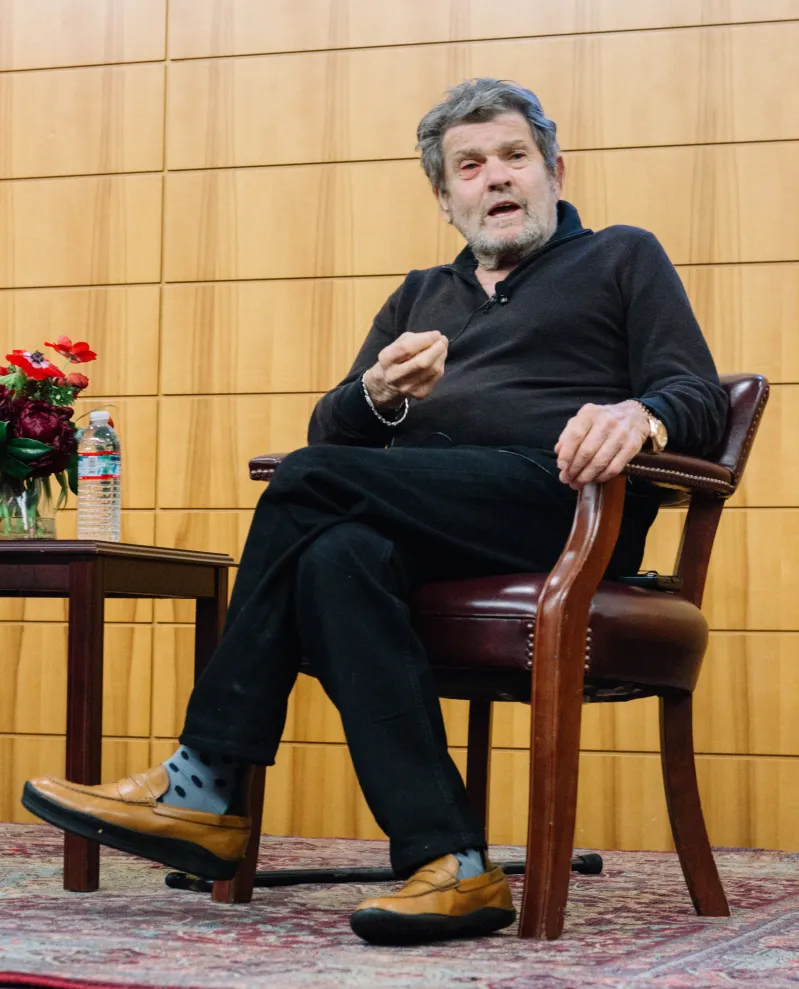 “The apology came Saturday night, a few hours after the Rock & Roll Hall of Fame Foundation announced he was being removed from his position on the board of directors. (Photo credit: Monique Oak/Stanford Daily)
“The apology came Saturday night, a few hours after the Rock & Roll Hall of Fame Foundation announced he was being removed from his position on the board of directors. (Photo credit: Monique Oak/Stanford Daily)
“In an interview with The New York Times — which was published online Friday, to promote his new book, The Masters — Wenner said he didn’t include interviews with Black and female musicians in his book because they aren’t ‘articulate’ enough. On Saturday, he said he apologized ‘wholeheartedly’ for his comments.
“ ‘In my interview with The New York Times, I made comments that diminished the contributions, genius, and impact of Black and women artists and I apologize wholeheartedly for those remarks,’ he said in a statement given to The Hollywood Reporter.
“‘The Masters is a collection of interviews I’ve done over the years that seemed to me to best represent an idea of rock ‘n’ roll’s impact on my world; they were not meant to represent the whole of music and [its] diverse and important originators but to reflect the high points of my career and interviews I felt illustrated the breadth and experience in that career. They don’t reflect my appreciation and admiration for myriad totemic, world-changing artists whose music and ideas I revere and will celebrate and promote as long as I live. I totally understand the inflammatory nature of badly chosen words and deeply apologize and accept the consequences.’
 “Wenner’s book features interviews with such rock legends as Bono, Bob Dylan, Jerry Garcia, Mick Jagger, John Lennon, Bruce Springsteen and Pete Townshend. However, it does not include any interviews with Black or female musicians.
“Wenner’s book features interviews with such rock legends as Bono, Bob Dylan, Jerry Garcia, Mick Jagger, John Lennon, Bruce Springsteen and Pete Townshend. However, it does not include any interviews with Black or female musicians.
“Asked by The Times how he chose the musicians to feature, Wenner replied: ‘When I was referring to the zeitgeist, I was referring to Black performers, not to the female performers, OK? Just to get that accurate. The selection was not a deliberate selection. It was kind of intuitive over the years; it just fell together that way. The people had to meet a couple criteria, but it was just kind of my personal interest and love of them. Insofar as the women, just none of them were as articulate enough on this intellectual level,’ he said.
“The Times reporter David Marchese, a onetime online editor at Rolling Stone, pushed back on that claim by citing Joni Mitchell.
“ ‘It’s not that they’re not creative geniuses,’ Wenner replied. ‘It’s not that they’re inarticulate, although, go have a deep conversation with Grace Slick or Janis Joplin. Please, be my guest. You know, Joni was not a philosopher of rock ’n’ roll. She didn’t, in my mind, meet that test. Not by her work, not by other interviews she did. The people I interviewed were the kind of philosophers of rock. Of Black artists — you know, Stevie Wonder, genius, right? I suppose when you use a word as broad as ‘masters,’ the fault is using that word. Maybe Marvin Gaye, or Curtis Mayfield? I mean, they just didn’t articulate at that level.’ . . .
“Wenner led Rolling Stone for five decades before stepping away in 2019. . . .”
- Paul Farhi and Will Sommer, Washington Post: The rapid downfall of Jann Wenner was years in the making

After 15 Years, Mexican Reporter Wins Asylum in U.S.
“A National Press Club press freedom honoree who has been battling attempts to deport him to a country where he was threatened with death finally has won asylum in the United States,” the press club reported on Thursday.
“Fifteen years after coming to the U.S. legally and seeking refuge, Mexican journalist Emilio Gutiérrez Soto this week received word that the Board of Immigration Appeals has ruled him eligible for asylum.
“In a five-page opinion sent to Gutiérrez’s lawyer, Eduardo Beckett, the BIA ruled that an El Paso immigration judge’s two decisions against Gutiérrez were ‘clearly erroneous.’
“The three-judge panel ruled that Gutiérrez, whose home was ransacked by members of the Mexican military before he fled Mexico, ‘has a well-founded fear of persecution in Mexico.’ The judges cited Gutiérrez’s ‘journalistic work that was critical of the military’ and the ‘numerous letters and extensive declarations in support’ of Gutiérrez’s asylum bid.
“ ‘It has been a long journey, and these past 15 years have been difficult. But today, justice has won,’ Gutiérrez, 60, said from Ann Arbor, Michigan, where he now resides. He was 45 when he fled Ascensión, Chihuahua, Mexico, after a confidential source told him that his reporting on the military’s efforts to shake down locals had made him a marked man. In Mexico, journalists are routinely targeted by drug cartels and corrupt government officials. Since 1992, more than 150 journalists have been killed in Mexico, according to the Committee to Protect Journalists, making it the most dangerous place to work for reporters outside a war zone.
“The ruling is a victory for the National Press Club and numerous press freedom organizations. The Press Club became involved in the Gutiérrez case six years ago, after inviting him to accept the John Aubuchon Press Freedom award on behalf of journalists in Mexico. . . .”
Journal-isms asked Beckett about the larger picture for journalists seeking asylum in the United States.
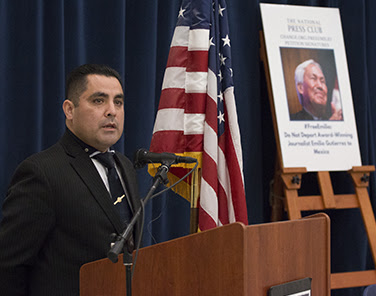 “Although not a published decision, I think that high profile journalists that critique people in power and then are threatened have a good chance to win,” Beckett (pictured) messaged. “It is a case-by-case basis, but I think it is helpful if their home country has a habit of jailing or killing journalists as in Mexico. This case can be used as a persuasive argument that a journalist is a bona fide member of a particular social group, that is to say that they are [singled] out by the government. But keep in mind the numerous support and the time it took to win this.” (Photo credit: Borderzine)
“Although not a published decision, I think that high profile journalists that critique people in power and then are threatened have a good chance to win,” Beckett (pictured) messaged. “It is a case-by-case basis, but I think it is helpful if their home country has a habit of jailing or killing journalists as in Mexico. This case can be used as a persuasive argument that a journalist is a bona fide member of a particular social group, that is to say that they are [singled] out by the government. But keep in mind the numerous support and the time it took to win this.” (Photo credit: Borderzine)
Referring to the United Nations High Commissioner for Refugees, Beckett continued, “The UNHCR Handbook emphasizes that ‘Membership of such a particular social group may be at the root of persecution because there is no confidence in the group’s loyalty to the Government or because the political outlook, antecedents or economic activity of its members, or the very existence of the social group as such, is held to be an obstacle to the Government’s policies.’
“The UNHCR states that persecution on the basis of political opinions are ‘opinions not tolerated by the authorities, which are critical of their policies or methods.’ Here, Emilio’s public critique met the criteria.”
- Committee to Protect Journalists: CPJ urges U.S. immigration authorities to grant parole to Emilio Gutiérrez Soto (Feb. 6, 2018)
- Carolina de Assis, LatAm Journalism Review: Mexico is the country with the most missing journalists in the world; cases have 100% impunity (Sept. 6)
- Stephanie Sugars, Committee to Protect Journalists: Journalists fleeing threats at home trapped in ICE detention over US asylum seeker policy (Dec. 12, 2018)
- Lucy Westcott, Committee to Protect Journalists: CPJ’s support to exiled journalists jumped 227% in 3 years, reflecting global press freedom crisis (June 16)
Gannett-owned USA Today reported on Diana Ross serenading Beyoncé with ‘Happy Birthday’ Sept. 5 on Beyoncé’s Renaissance tour. (Credit: YouTube)
A Beyoncé Reporter? What About Covering City Hall?
“Gannett’s USA Today Network has listed a job posting for a Beyoncé reporter to work at The Tennessean, just one day after releasing a posting for a Taylor Swift reporter,” The Wrap reported Wednesday, but the postings were criticized by journalists who noted that the largest U.S. newspaper chain has most recently undergone layoffs, cutting 6 percent of its approximately 3,440-person news division.
“The Nashville-based Tennessean released the job posting on Wednesday. It highlighted that the publication was seeking a [reporter] to “chronicle the music, fashion, cultural and economic influence of Beyoncé,” the Wrap continued.
“The international superstar and icon’s impact is felt across generations,” the job posting continued. “She has been a force in everything from how the country views race to how women think about their partners.”
Jonah Valdez noted in the Los Angeles Times Wednesday that Gannett cutbacks have “shuttered entire publications in some communities, creating more news deserts.
“One of those news deserts is in Tennessee . . . Communities in middle Tennessee now lack local reporters covering things such as city hall, local policies, crime and other neighborhood issues.
“A Gannett spokesperson defended the Swift listing and told [Nieman] Lab that the company is ‘actively’ recruiting for more than 100 open roles and has already hired 225 journalists since March, when Gannett’s chief content officer, Kristin Roberts, joined the chain.”
Tom Jones wrote for the Poynter Institute, after the Swift position was announced, “Could an investment in a full-time reporter to cover a specific musician be a sign everything has changed around courting readers at Gannett? (scroll down) One reporting position doesn’t get Gannett out of the woods, but a gold rush of reading material for Swift’s massive online fanbase can’t hurt.”
- Marissa Evans, Los Angeles Times: Beyoncé’s birthday Renaissance show celebrated the depths of Black womanhood (Sept. 6)
- Errin Haines, the 19th: The Summer of the Black Woman (Sept. 7)
“History of a National Treasure,” a history of Morgan State University created by the School of Global Journalism and Communication’s Center for New Media & Strategic Initiatives, was completed an posted online this month. The film was written and produced by Dean Emeritus DeWayne Wickham. (Credit: YouTube)
HBCUs Receive $124 Million More to Upgrade
“The HBCU Transformation Project received a $124 million investment from Blue Meridian Partners, increasing its total investment to $184 million,” the United Negro College Fund announced Wednesday. “The new investment will expand the Transformation Project’s work to drive systemic improvements among historically Black colleges and universities (HBCUs) nationwide.
“The HBCU Transformation Project is a collaboration between UNCF (United Negro College Fund), Thurgood Marshall College Fund (TMCF), and Partnership for Education Advancement (Ed Advancement). Forty HBCUs are currently working intensively with the Project and additional campuses are expected to join this year. A complete list of participating HBCUs is available here. The HBCU Transformation Project launched in 2022.”
Asked about the effect on journalism schools and programs, UNCF spokesperson Roy Betts messaged, “The focus of the project is in these areas:
“Increasing enrollment at HBCUs, increasing retention and graduation rates, and increasing the wealth in Black communities. We expect the project will enhance the operational efficiencies and effectiveness at HBCU institutions and will produce graduates in all fields (including journalism) with the knowledge, skills and abilities to be successful in their careers and achieve economic mobility that uplifts the Black community.”
MLK50 Awarded $1 Million in Grants in One Week
MLK50: Justice Through Journalism, which describes itself as “a nonprofit Memphis newsroom focused on poverty, power and public policy — issues about which Dr. Martin Luther King Jr. cared deeply,” Tuesday was awarded a $900,000 grant from one foundation, and on Friday $190,000 from another.
 The first, from the Skyline Foundation, is the six-year-old MLK50’s second-largest multiyear investment to date, the announcement said. “It balances the Ford Foundation’s recent $2 million, five-year investment to the organization’s business side with direct support to the editorial side.”
The first, from the Skyline Foundation, is the six-year-old MLK50’s second-largest multiyear investment to date, the announcement said. “It balances the Ford Foundation’s recent $2 million, five-year investment to the organization’s business side with direct support to the editorial side.”
MLK50 is to receive $900,000 in general operating support over the next three years “to deepen its reporting and community engagement around core coverage topics, including housing, public safety and government accountability,” the announcement continued.
“MLK50 falls under Skyline’s Just Democracy program area. Because the foundation believes journalism is inextricably linked to a thriving democracy, it supports newsrooms working to develop the news information ecosystem.” The foundation also supports “creating high quality investigative and accountability journalism that holds power to account and builds community trust,” according to Skyline’s website. Other grantees under this program include Capital B, Outlier Media, Centro de Periodismo Investigativo, City Bureau and Documented.”
From the Kresge Foundation, MLK50 is to receive $190,000 in general operating support over the next two years under its American Cities program, one of its seven program areas through which it seeks to “expand opportunity by promoting effective and inclusive community development practices” in its hometown of Detroit and beyond. In addition to New Orleans, Memphis has been a priority for the foundation’s city-focused grantmaking, the second announcement said.
MLK50 Founder Wendi C. Thomas (pictured, above) had been a metro columnist and assistant managing editor at The Commercial Appeal in Memphis, among other roles. MLK50 calls itself unapologetically disruptive, taking inspiration from King’s words, “The problems of racial injustice and economic injustice cannot be solved without a radical redistribution of political and economic power.” The project focuses on themes King stressed in his final years: racial equity; jobs and wages; power and wealth; housing; criminal justice; and growing black businesses.
In April, the Nieman Foundation at Harvard awarded Thomas its I.F. Stone Medal for Journalistic Independence, saying MLK50 “has provided indispensable community journalism and has told the stories of marginalized people too often ignored by established news media.”

Three See ‘Casual Ageism’ in Evaluating Biden
“The issue I have with dismissing someone as too old — to be president of the United States or to get into a bikini — is that it sounds factual when really it’s quite subjective,” LZ Granderson, 51, (pictured) wrote Sept. 1 for the Los Angeles Times.
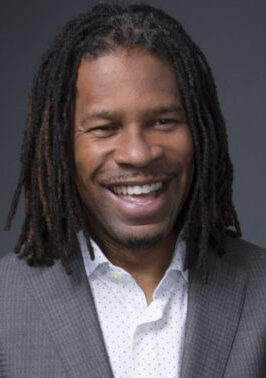 “Most of society’s age-oriented benchmarks end at 21. Beyond that it’s a free for all. In 1980, a third of U.S. adults were married by 21. Pew Research has that around 6% now. How we think about life stages has shifted drastically.
“Most of society’s age-oriented benchmarks end at 21. Beyond that it’s a free for all. In 1980, a third of U.S. adults were married by 21. Pew Research has that around 6% now. How we think about life stages has shifted drastically.
“Even in our families, age means different things. One elderly relative may not be able to drive anymore, but another can travel solo. We’ve been conditioned to cling to numbers and to discount even our own experiences when it comes to age.
“If [Senate Republican leader Mitch] McConnell takes a break from the Senate or steps down, it won’t be because of age alone. It’ll be because of health reasons. Just as questions surrounding Sen. John Fetterman (D-Pa.) are not about the 54-year-old’s age but, rather, his capacity to do the job.
“The median age of U.S. senators, now at 65 years, is older than it was two years ago. . . . That may be a lot of wrinkles. But it’s also a lot of wisdom and applicable lived experience — in theory, anyway.
“The casual ageism in our critique of elected officials also feels counterproductive in a society that is getting older as a whole. . . .
“Health issues can come with aging, but science is helping us, including politicians, age better. When Mick Jagger was 29, he was asked whether he could see himself still performing at 60. He replied, ‘Yeah, easily, yeah.’
“Last summer the Rolling Stones turned 60. This summer Jagger turned 80 and the Stones are expected to release a new album next week. On the issue of age, too often we fall back to our old habits of putting the number before the person.”
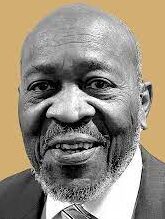 Meanwhile, in The Washington Post, columnist Colbert I. King (pictured), who turns 84 on Wednesday, wrote, “I would love to have a President Biden continue in the White House handling the country’s business and an elder-statesman Biden on the back porch telling stories and occasionally doling out advice to the rising generation of leaders behind him. But I can’t have it both ways. And it’s Biden’s call to make.
Meanwhile, in The Washington Post, columnist Colbert I. King (pictured), who turns 84 on Wednesday, wrote, “I would love to have a President Biden continue in the White House handling the country’s business and an elder-statesman Biden on the back porch telling stories and occasionally doling out advice to the rising generation of leaders behind him. But I can’t have it both ways. And it’s Biden’s call to make.
“In my book, whether it’s restoring the business of governing after the helter-skelter, unethical Trump era or dealing with tough economic realities or restoring this country’s role in the world, Biden has earned another term in office. It would be a shame if Biden were forced to capitulate to the insidious blandishments of ageism, which the American Psychological Association calls one of the last socially acceptable prejudices in the United States. It certainly is among the most intentionally vocalized prejudices.”
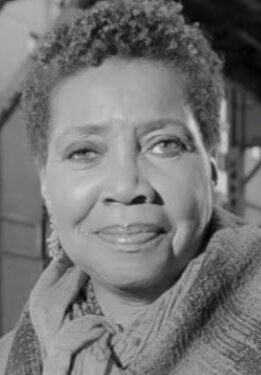 In Chicago, recently retired journalist Mary Mitchell (pictured), 74, has started a column on aging, “Starting Over,” for the Chicago Sun-Times. Its debut headline Sept. 8 was, “Joe Biden’s age isn’t the problem. We are,” with the subhead, “Aging isn’t for cowards. Longevity is a blessing that should be celebrated, not ridiculed.”
In Chicago, recently retired journalist Mary Mitchell (pictured), 74, has started a column on aging, “Starting Over,” for the Chicago Sun-Times. Its debut headline Sept. 8 was, “Joe Biden’s age isn’t the problem. We are,” with the subhead, “Aging isn’t for cowards. Longevity is a blessing that should be celebrated, not ridiculed.”
Mitchell wrote, “The shame isn’t that Biden is showing his age. The problem is that the Democrats couldn’t find a promising candidate to challenge the Republicans and let Biden go home and get some rest.
“Americans should be concerned if the medical professionals caring for Biden determine he can’t carry out his duties.
“Otherwise, our concern is just ageism. . . .”
- Reid J. Epstein and Lisa Lerer, New York Times: As Democratic Jitters Grow, Biden Campaign Tries to Showcase His Vigor
- Kory Grow, Rolling Stone: How the Rolling Stones Finally Got It Together and Made a Great New Album
- David Jackson, USA Today: Trump says Biden isn’t too old to be president, warns Republicans about abortion in interview: 6 takeaways
- Journal-isms: Dems Say They’ll Lift Up Voters of Color (Aug. 23)
- A. Martinez with Dan Buettner, NPR: Netflix series travels the world’s ‘blue zones’ where longevity rules
- Lucy Schiller, Columbia Journalism Review: No New News: America’s politicians are old. So are news consumers. At a home for the elderly, residents weigh in on journalism’s obsession with age. (Sept. 5)
- Margaret Sullivan, the Guardian: With democracy on the ballot, the mainstream press must change its ways: US news organizations have turned Biden’s age into a scandal and continue to cover Trump as an entertaining side show
- David Von Drehle, Washington Post: Democrats are crazy to insist only Biden can beat Trump
- Micah Yason, WBEZ, Chicago: “Reset with Sasha-Ann Simons”: Chicago Sun-Times columnist Mary Mitchell launches column on aging (Sept. 13) (audio)

All Should Know Journalist Jovita Idár’s Story
“I only recently learned about Jovita Idár, , the trailblazing Mexican American journalist, activist and teacher whose face is now on a U.S. quarter,” Nancy M. Preyor-Johnson wrote Friday for the San Antonio Express-News.
“Express-News Metro columnist Elaine Ayala wrote about her earlier this month, and San Antonio is celebrating her with a mural launch and symposiums.
“I regret not teaching my students about her when I worked as a journalism teacher. Idár was a civil rights icon who was brown like many of them — and me. It’s no surprise our education system ignored a Mexican American woman who wrote in 1911: ‘Working women are … no longer men’s servants but their equals, their partners.’
“That it took her face being minted onto a quarter for me to learn about her says a lot about how Texas’ education system whitewashes and limits historical understanding and figures. Idár’s story is a Texas and American story everyone should know.
“I taught about historic journalism figures: Johannes Gutenberg, Benjamin Franklin, Frederick Douglass, Joseph Pulitzer, William Randolph Hearst, Nellie Bly, Edward R. Murrow and others. However, the story of Idár, a Mexican American activist and muckraking journalist, could have deeply resonated and inspired students, allowing them to see themselves in her.
“If I were teaching today, I would introduce Idár to my students by first showing them her quarter. Then we would watch ‘Jovita Idar: Mexican American Activist and Journalist,’ the 2020 American Masters PBS short film about her, and marvel over her extraordinary life. . . .
 “In the PBS documentary, Idár’s story is told by Gabriela González, author and associate professor of history at the University of Texas at San Antonio, and Pulitzer Prize-winning journalist Maria Hinojosa, the first Latina journalist hired at NPR, CNN and PBS. (Image: U.S. State Department)
“In the PBS documentary, Idár’s story is told by Gabriela González, author and associate professor of history at the University of Texas at San Antonio, and Pulitzer Prize-winning journalist Maria Hinojosa, the first Latina journalist hired at NPR, CNN and PBS. (Image: U.S. State Department)
“Born in Laredo in 1885, Idár worked as a journalist at La Crónica, her father’s newspaper, and El Progreso, writing about segregation, lynching and other civil rights injustices Tejanos endured under Juan Crow laws.
“When El Progreso published an editorial criticizing U.S. military intervention in the Mexican Revolution, the Texas governor ordered the Texas Rangers to destroy El Progreso. Idár stood her ground, and the Texas Rangers left, only to return with sledge hammers, destroying the printing press but not her spirit.
“The Mexican Revolution began in 1910 and spread to Texas border regions by 1914. La Crónica ceased publication, and Idár became a revolutionary army nurse, joining La Cruz Blanca, the White Cross. Idar returned to journalism, writing for various Spanish-language newspapers. She created her own Spanish-language newspaper, Evolución, in 1916.
“Later, she moved to San Antonio, where she helped undocumented workers obtain naturalization papers, founded a free nursery school and tutored young children. . . .”
- Zuri Anderson, Black Information Network: Hispanic Heritage Month: 10 Trailblazing Afro-Latino Stars You Should Know
- Kyle Bradshaw, Google: Google Doodle honors Jovita Idár, Mexican-American civil rights activist (Sept. 20, 2020)
- Shannon Dawson, Black America Web: National Hispanic Heritage Month: Notable Black People Who Are Afro-Latinos
- Marcela García, Boston Globe: Why Boston needs a Latino and Caribbean affairs office
- Chelsea Hylton, de los, Los Angeles Times: Trailblazing Latina journalists recognized at Smithsonian with new exhibit
- Michel Martin with Eyder Peralta, NPR: A rare chance to look into Nicaragua, a country that shuts itself off to journalists
- Jennifer Medina, New York Times: Overlooked No More: Jovita Idár, Who Promoted Rights of Mexican-Americans and Women (Aug. 7, 2020; updated Aug. 19, 2020)
- Susan Montoya, Associated Press: Stamp design celebrates Hispanic heritage
- Terry Tang, Associated Press: National Hispanic Heritage Month highlights cultural diversity of Spanish-speaking Americans
- Francisco Vara-Orta, Poynter Institute: Forging my own path as a journalist was all I knew
Short Takes
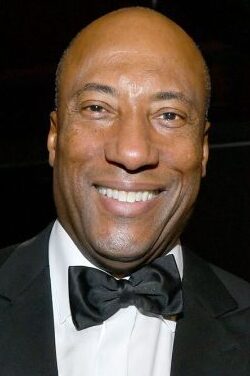 “Walt Disney Co. has now fielded at least one offer for its ABC TV network, local stations and some cable channels, and more may come as the company seeks to shed what it considers non-core assets and focus on streaming,” Christopher Palmeri reported Thursday, updated Friday, for Bloomberg News. “Media mogul Byron Allen (pictured) offered $10 billion, albeit tentatively, for Disney’s flagship broadcast network as well as the FX and National Geographic cable channels, according to a person familiar with his proposal. Separately, Disney has held exploratory talks about ABC and its eight local TV stations with Nexstar Media Group Inc., people familiar with those discussions said. All of the people asked not to be named disclosing information that’s not public. . . .”
“Walt Disney Co. has now fielded at least one offer for its ABC TV network, local stations and some cable channels, and more may come as the company seeks to shed what it considers non-core assets and focus on streaming,” Christopher Palmeri reported Thursday, updated Friday, for Bloomberg News. “Media mogul Byron Allen (pictured) offered $10 billion, albeit tentatively, for Disney’s flagship broadcast network as well as the FX and National Geographic cable channels, according to a person familiar with his proposal. Separately, Disney has held exploratory talks about ABC and its eight local TV stations with Nexstar Media Group Inc., people familiar with those discussions said. All of the people asked not to be named disclosing information that’s not public. . . .”
- . . . .”Allen Media Group’s free-streaming service Local Now said it made a deal to launch 18 free ad-supported streaming television channels from Paramount Global’s CBS,” Jon Lafayette reported Wednesday for Broadcasting & Cable. “Local Now will be adding four national channels with CBS News Streaming, CBS Sports Golazo Network, Inside Edition and Dabl. . . . “

- . . . “Allen Media Group’s theGrio is working with the Associated Press to present a segment entitled ‘Race and Democracy: The Facts and The Fury.’” Jon Lafayette reported Wednesday for Broadcasting & Cable. “The segment will appear on television during theGrio News with Marc Lamont Hill on Oct. 4. It will also be available to AP customers on APNews.com. It will feature a panel discussion moderated by AP race and ethnicity video journalist Noreen Nasir. Panelists include the AP’s Aaron Morrison and Ayanna Alexander and theGrio’s Christina Greer and Marc Lamont Hill. . . .”
 “Philippine Nobel Peace laureate Maria Ressa (pictured) was acquitted of tax evasion Tuesday, according to her news site Rappler, in the latest legal victory for the veteran journalist,” Kathleen Magramo reported Tuesday for CNN. “Ressa and Rappler are now cleared of all five tax-related charges filed during the administration of former President Rodrigo Duterte, according to CNN affiliate CNN Philippines. . . . Ressa, 59, is the CEO and co-founder of Rappler and a former CNN journalist. . . .”
“Philippine Nobel Peace laureate Maria Ressa (pictured) was acquitted of tax evasion Tuesday, according to her news site Rappler, in the latest legal victory for the veteran journalist,” Kathleen Magramo reported Tuesday for CNN. “Ressa and Rappler are now cleared of all five tax-related charges filed during the administration of former President Rodrigo Duterte, according to CNN affiliate CNN Philippines. . . . Ressa, 59, is the CEO and co-founder of Rappler and a former CNN journalist. . . .”
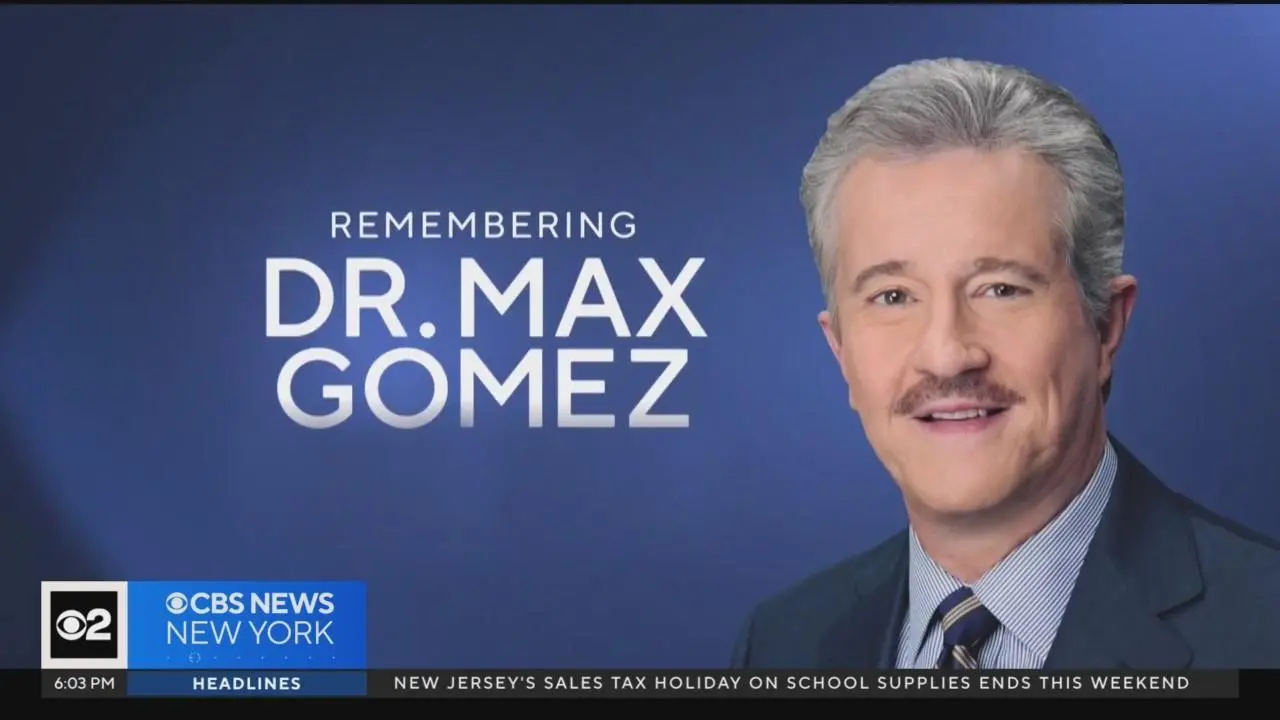 “Max Gomez (pictured), an award-winning medical and science journalist who delivered informed reports for more than 40 years on TV stations in New York and Philadelphia, most recently during the Covid-19 pandemic, died on Sept. 2 at his home in Manhattan,” Richard Sandomir reported Sept. 9, updated Sept. 11, for The New York Times. “He was 72. His partner, Amy Levin, said the cause was head and neck cancer, with which he had been diagnosed four years ago. Billed as ‘Dr. Max,’ he brought an easygoing gravitas to reporting on subjects like vaccinations, knee replacements, prostate cancer, colonoscopies, sickle cell anemia and, when he himself contracted them, Lyme disease and the MRSA infection. One of his reports on Alzheimer’s disease focused on his father, a physician, who was swindled as his memory abandoned him. . . .”
“Max Gomez (pictured), an award-winning medical and science journalist who delivered informed reports for more than 40 years on TV stations in New York and Philadelphia, most recently during the Covid-19 pandemic, died on Sept. 2 at his home in Manhattan,” Richard Sandomir reported Sept. 9, updated Sept. 11, for The New York Times. “He was 72. His partner, Amy Levin, said the cause was head and neck cancer, with which he had been diagnosed four years ago. Billed as ‘Dr. Max,’ he brought an easygoing gravitas to reporting on subjects like vaccinations, knee replacements, prostate cancer, colonoscopies, sickle cell anemia and, when he himself contracted them, Lyme disease and the MRSA infection. One of his reports on Alzheimer’s disease focused on his father, a physician, who was swindled as his memory abandoned him. . . .”
 “There are so many more Black communities that need better news and information, and we want to be ready to go where there is the most need. Today, we’re launching our Black Local News Fund, an initiative that will help us do just that,” the Capital B startup announced Friday. “A donation to the fund will grow a pool of money that we can direct to any Black community that needs stronger local news, no matter its size, location, average income, or the availability of local philanthropic support. . . . Over the next week, we’re hoping to raise $10,000 to launch the Black Local News Fund, so that we are ready to spring to action when it’s time to open a new local newsroom. More here.
“There are so many more Black communities that need better news and information, and we want to be ready to go where there is the most need. Today, we’re launching our Black Local News Fund, an initiative that will help us do just that,” the Capital B startup announced Friday. “A donation to the fund will grow a pool of money that we can direct to any Black community that needs stronger local news, no matter its size, location, average income, or the availability of local philanthropic support. . . . Over the next week, we’re hoping to raise $10,000 to launch the Black Local News Fund, so that we are ready to spring to action when it’s time to open a new local newsroom. More here.
- A nearly year-long project inspired in part by The New York Times’ 1619 Project has recommended that Kansas elevate the example of Quindaro, a settlement established by white Massachusetts abolitionists, Black freed people and Indigenous people, Mark McCormick, a former Wichita Eagle columnist, wrote last month for the ACLU of Kansas. “The report discusses the affiliate’s campaign issues of voting rights and criminal justice reform, as well as gender equality, public health, and I-635’s long-lasting destruction of the Quindaro neighborhood, through a historical lens,” the ACLU of Kansas said. “Enslaved people fleeing bondage in Missouri waded across the river into the Quindaro settlement, into freedom, nearly 170 years ago,” the report says. [PDF]
- “Ninety years after a physician took a young Alaska woman’s brain for a ‘racial brain collection’ at the Smithsonian Institution, a museum official delivered her brain to her family for burial near the rest of her remains in Seattle,” Nicole Dungca and Claire Healy reported Sept. 8 for The Washington Post. “For decades, the National Museum of Natural History held Mary Sara’s brain in storage, until The Washington Post learned of it earlier this year as part of its investigation into human remains held by the Smithsonian and informed Sara’s living relatives that it had been taken. . . .”
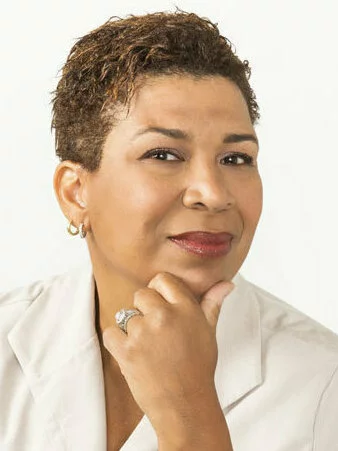 NPR “Morning Edition” co-host Michel Martin (pictured) traveled to Chad with Linda Thomas-Greenfield, U.S. ambassador to the United Nations, to visit a makeshift refugee camp near the country’s border with war-torn Sudan, from which 400,000 people have fled since April. The U.S. visitors modeled diversity, Martin told Journal-isms. She and Thomas-Greenfield are African American, as were members of Thomas-Greenfield’s team. NBC’s Andrea Mitchell, who is white, was accompanied by two Latino camera people, Cesar Augusto Gonzalez and Rodolfo Estrada; and camera person Milton Arturo Guevara Jr., also Latino, was part of the three-person NPR crew.
NPR “Morning Edition” co-host Michel Martin (pictured) traveled to Chad with Linda Thomas-Greenfield, U.S. ambassador to the United Nations, to visit a makeshift refugee camp near the country’s border with war-torn Sudan, from which 400,000 people have fled since April. The U.S. visitors modeled diversity, Martin told Journal-isms. She and Thomas-Greenfield are African American, as were members of Thomas-Greenfield’s team. NBC’s Andrea Mitchell, who is white, was accompanied by two Latino camera people, Cesar Augusto Gonzalez and Rodolfo Estrada; and camera person Milton Arturo Guevara Jr., also Latino, was part of the three-person NPR crew.

- Derrick Z. Jackson won a President’s Choice Award for photography from the Outdoor Writers Association of America for “So Sorry, Saury” in the Maine Monitor. Separately, “Outdoor Afro and Nature Swag with Rue Mapp and John Kruse” (America Outdoors Radio Network), won in the radio/podcast category, family participation/youth outdoor education.
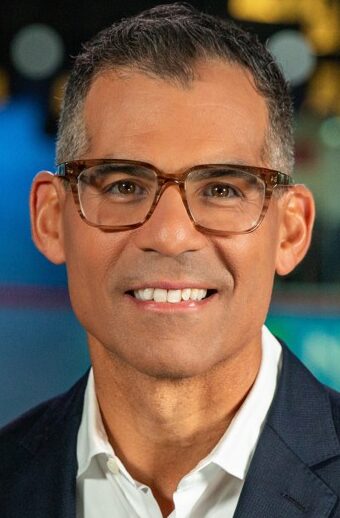 “Chris Peña (pictured) is no longer with Univision,” Veronica Villafañe reported Sept. 10 for her Media Moves site. “Peña, who joined the company in 2016 as SVP of News of the local media division, announced on social media his last day was Friday, September 8. He had been in charge of overseeing local news operations and strategy for the station.”
“Chris Peña (pictured) is no longer with Univision,” Veronica Villafañe reported Sept. 10 for her Media Moves site. “Peña, who joined the company in 2016 as SVP of News of the local media division, announced on social media his last day was Friday, September 8. He had been in charge of overseeing local news operations and strategy for the station.”
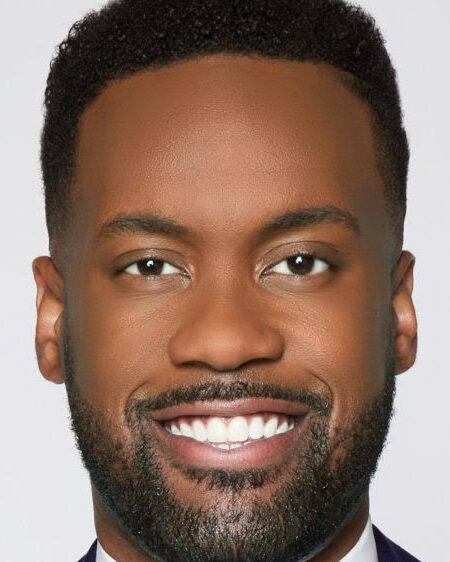 “ ‘Fox & Friends’ will need a longer curvy couch,” Brian Steinberg reported Thursday for Variety. “Lawrence Jones (pictured) has been named a co-host of the Fox News Channel flagship morning program, in a move that brings the number of on-air personnel to four on weekdays and nods to a growing need at the cable outlet for more diversity on its schedule. Jones will start September 18. . . . Fox News has very few people of color leading programs during weekdays. Harris Faulkner anchors two different hours in middays, but most of the other personalities anchoring the network’s shows are white. Meanwhile, both CNN and MSNBC have in recent months added people from a range of different backgrounds to new positions on the schedule. . . .”
“ ‘Fox & Friends’ will need a longer curvy couch,” Brian Steinberg reported Thursday for Variety. “Lawrence Jones (pictured) has been named a co-host of the Fox News Channel flagship morning program, in a move that brings the number of on-air personnel to four on weekdays and nods to a growing need at the cable outlet for more diversity on its schedule. Jones will start September 18. . . . Fox News has very few people of color leading programs during weekdays. Harris Faulkner anchors two different hours in middays, but most of the other personalities anchoring the network’s shows are white. Meanwhile, both CNN and MSNBC have in recent months added people from a range of different backgrounds to new positions on the schedule. . . .”
 “In each of the last two years, we have announced our ’15 Over 50′ salute,” Robin Blinder wrote Tuesday for Editor & Publisher. “However, again this year, the nominees have been so deserving that we expanded the group to include ’20 Over 50.’ ” They include Warren C. Dews Jr., vice president and publisher, Capital Region Independent Media, Clifton Park, N.Y.; John Sotomayor, publisher and editor-in-chief, Sotomayor Media Creations, LLC, dba Embrace Magazine, Ocala, Fla.; and Benét J. Wilson (pictured), director, Poynter-Koch Media and Journalism Fellowship.
“In each of the last two years, we have announced our ’15 Over 50′ salute,” Robin Blinder wrote Tuesday for Editor & Publisher. “However, again this year, the nominees have been so deserving that we expanded the group to include ’20 Over 50.’ ” They include Warren C. Dews Jr., vice president and publisher, Capital Region Independent Media, Clifton Park, N.Y.; John Sotomayor, publisher and editor-in-chief, Sotomayor Media Creations, LLC, dba Embrace Magazine, Ocala, Fla.; and Benét J. Wilson (pictured), director, Poynter-Koch Media and Journalism Fellowship.
- “Radio is perhaps the only uncensored form of media available inside prisons and jails. It can’t be restricted like the internet or mail that’s opened ahead of time,” Jenna Spinelle wrote Thursday for Current. “The two-hour radio program is driven entirely by requests from people incarcerated in Illinois prisons and jails. WBEZ initially worked with more than a dozen organizations that do outreach to incarcerated people to gather submissions, said Alex Keefe, WBEZ’s engagement editor and leader of the Prisoncast! project. The station received about 70 requests for the first broadcast and about 150 requests for the second broadcast. They came from 22 Illinois Department of Corrections Facilities, Cook County Jail and a federal prison. . . .”
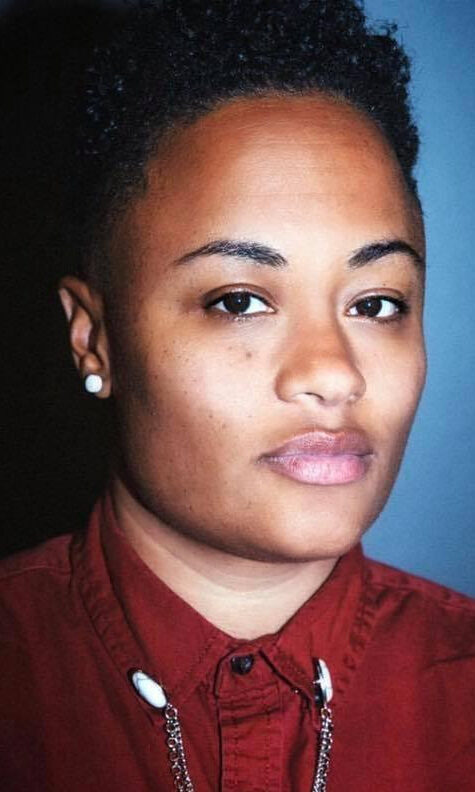 “Mother Jones announced the hiring of Jamilah King (pictured) as an Editorial Director, marking her return to the nonprofit news outlet where she worked for more than four years, including as host of its weekly podcast and its race and justice reporter,” the publication said Thursday. “Prior to her return to Mother Jones, King served as BuzzFeed’s managing editor and deputy inequality editor. In those roles she integrated various business and editorial operations, spearheaded a direct sales program that generated significant revenue, and edited a team of reporters based in London, Delhi, Mexico City, and New York City. . . .”
“Mother Jones announced the hiring of Jamilah King (pictured) as an Editorial Director, marking her return to the nonprofit news outlet where she worked for more than four years, including as host of its weekly podcast and its race and justice reporter,” the publication said Thursday. “Prior to her return to Mother Jones, King served as BuzzFeed’s managing editor and deputy inequality editor. In those roles she integrated various business and editorial operations, spearheaded a direct sales program that generated significant revenue, and edited a team of reporters based in London, Delhi, Mexico City, and New York City. . . .”
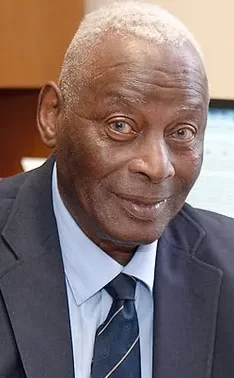 “Temple University will honor the memory of Charles L. Blockson (pictured), who had been curator emeritus of the Charles L. Blockson Afro-American Collection at the university when he died in June, at a special memorial service Tuesday,” Valerie Russ reported Monday for the Philadelphia Inquirer. “Blockson, 89, an award-winning scholar and author, died June 14 at his home in Gwynedd. He founded the Blockson Collection in 1984 when he donated thousands of books and other memorabilia to the university. The Blockson collection at Temple is considered one of the most comprehensive collections of African American historical artifacts. The late Inquirer’s Acel Moore, a co-founder of the National Association of Black Journalists, was among those who donated memorabilia and artifacts.
“Temple University will honor the memory of Charles L. Blockson (pictured), who had been curator emeritus of the Charles L. Blockson Afro-American Collection at the university when he died in June, at a special memorial service Tuesday,” Valerie Russ reported Monday for the Philadelphia Inquirer. “Blockson, 89, an award-winning scholar and author, died June 14 at his home in Gwynedd. He founded the Blockson Collection in 1984 when he donated thousands of books and other memorabilia to the university. The Blockson collection at Temple is considered one of the most comprehensive collections of African American historical artifacts. The late Inquirer’s Acel Moore, a co-founder of the National Association of Black Journalists, was among those who donated memorabilia and artifacts.
 Why isn’t Tamron Hall on late-night television? Hall, who hosts a daytime syndicated talk show, told Raquel ‘Rocky’ Harris of The Wrap Friday that late night TV, historically, hasn’t created much space for Black people, women and even more specifically, Black women. “I also think the consideration of a Black woman is sadly not high on the list. We’ve seen Amber [Ruffin], you see Robin [Thede], we’ve seen it done,” Hall said. “But, I sadly have to be honest with you and say I believe the industry still believes that, despite the success of many women, Joan Rivers, and others…Monique on BET, that it is a space, somehow, that’s meant for a male host. And currently that host, more times than not, is a white male.”
Why isn’t Tamron Hall on late-night television? Hall, who hosts a daytime syndicated talk show, told Raquel ‘Rocky’ Harris of The Wrap Friday that late night TV, historically, hasn’t created much space for Black people, women and even more specifically, Black women. “I also think the consideration of a Black woman is sadly not high on the list. We’ve seen Amber [Ruffin], you see Robin [Thede], we’ve seen it done,” Hall said. “But, I sadly have to be honest with you and say I believe the industry still believes that, despite the success of many women, Joan Rivers, and others…Monique on BET, that it is a space, somehow, that’s meant for a male host. And currently that host, more times than not, is a white male.”
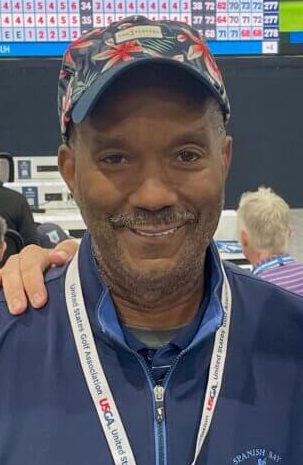 “Thanks to a faculty renewal program at the University of Florida College of Journalism and Communications — where I teach classes focusing on multimedia reporting as well as race, sports and culture — I instead spent seven weeks as a visiting academic fellow with the Los Angeles Times,” Herbert Lowe (pictured), long active in the National Association of Black Journalists, wrote Sept. 11 for the Poynter Institute. “Assigned to the sports department, I earned seven bylines,” and shared a few takeaways from the experience: “What is the audience saying about the coverage?” “The bar for reporters getting their stories into the sports section just got higher,” “Given the diminishing reliance on game stories, should student sports reporters still learn how to do them?” His editor “still wants stories with lots of voices and perspectives in them.,” “Listicles are more popular than I had imagined.,” “An opinion writer doesn’t always have to come down on one side or the other? and “No surprise here — always tell your editor when something odd happens while on assignment.”
“Thanks to a faculty renewal program at the University of Florida College of Journalism and Communications — where I teach classes focusing on multimedia reporting as well as race, sports and culture — I instead spent seven weeks as a visiting academic fellow with the Los Angeles Times,” Herbert Lowe (pictured), long active in the National Association of Black Journalists, wrote Sept. 11 for the Poynter Institute. “Assigned to the sports department, I earned seven bylines,” and shared a few takeaways from the experience: “What is the audience saying about the coverage?” “The bar for reporters getting their stories into the sports section just got higher,” “Given the diminishing reliance on game stories, should student sports reporters still learn how to do them?” His editor “still wants stories with lots of voices and perspectives in them.,” “Listicles are more popular than I had imagined.,” “An opinion writer doesn’t always have to come down on one side or the other? and “No surprise here — always tell your editor when something odd happens while on assignment.”
 “The comedian Hasan Minhaj (pictured) came of age as a practicing Muslim in an Indian family in post-9/11 America,” Clare Malone wrote Friday for the New Yorker. “His Netflix series, ‘Patriot Act’ — a comedy news show in the mold of ‘The Daily Show’ and ‘Last Week Tonight’ — was named for the defining law of that era. The series won an Emmy and a Peabody Award during its two-year run. His stage work as a standup comic has led to two Netflix comedy specials. . . . In Minhaj’s approach to comedy, he leans heavily on his own experience as an Asian American and Muslim American, telling harrowing stories of law enforcement entrapment and personal threats. For many of his fans, he has become an avatar for the power of representation in entertainment. But, after many weeks of trying, I had been unable to confirm some of the stories that he had told onstage. . . . . When it came to his stage shows, he told me, ‘the emotional truth is first. The factual truth is secondary.’ ”
“The comedian Hasan Minhaj (pictured) came of age as a practicing Muslim in an Indian family in post-9/11 America,” Clare Malone wrote Friday for the New Yorker. “His Netflix series, ‘Patriot Act’ — a comedy news show in the mold of ‘The Daily Show’ and ‘Last Week Tonight’ — was named for the defining law of that era. The series won an Emmy and a Peabody Award during its two-year run. His stage work as a standup comic has led to two Netflix comedy specials. . . . In Minhaj’s approach to comedy, he leans heavily on his own experience as an Asian American and Muslim American, telling harrowing stories of law enforcement entrapment and personal threats. For many of his fans, he has become an avatar for the power of representation in entertainment. But, after many weeks of trying, I had been unable to confirm some of the stories that he had told onstage. . . . . When it came to his stage shows, he told me, ‘the emotional truth is first. The factual truth is secondary.’ ”
- “
 One of Egypt’s best-known opposition journalists was sentenced to six months in prison on Saturday, as President Abdel Fattah Al Sisi’s government moves to silence influential critics ahead of coming presidential elections,” Chao Deng reported for The Wall Street Journal. “The sentencing of Hisham Kassem, a 64-year-old writer and publisher and a founder of the liberal Free Current Movement, took place amid the arrests and prosecution of a number of activists or their close family and friends in recent months. It also came after the news that the U.S., citing Cairo’s human-rights record, would redirect to Taiwan $55 million of the $1.3 billion that America gives to Egypt each year. . . .”
One of Egypt’s best-known opposition journalists was sentenced to six months in prison on Saturday, as President Abdel Fattah Al Sisi’s government moves to silence influential critics ahead of coming presidential elections,” Chao Deng reported for The Wall Street Journal. “The sentencing of Hisham Kassem, a 64-year-old writer and publisher and a founder of the liberal Free Current Movement, took place amid the arrests and prosecution of a number of activists or their close family and friends in recent months. It also came after the news that the U.S., citing Cairo’s human-rights record, would redirect to Taiwan $55 million of the $1.3 billion that America gives to Egypt each year. . . .”
- In South Korea, “News outlet Newstapa and broadcaster Joongang Tongyang Broadcasting Company (JTBC) have been raided by South Korean authorities after reporting in 2022 on an allegedly fake interview claimed to discredit then-Presidential candidate Yoon Suk Yeol. The International Federation of Journalists (IFJ) and its affiliate, the Journalists Association of Korea (JAK), condemn the intimidation and legal harassment of media workers and news outlets and urge the authorities to cease all investigations immediately,” the press-freedom groups said Thursday.
- “Authorities in the Democratic Republic of Congo (DRC) have arrested and detained journalist Stanis Bujakera, who works for the international media outlet, Jeune Afrique,” the International Federation of Journalists reported Wednesday. “He was detained at the N’djili International Airport (Kinshasa) on Friday 8 September as he was about to board a flight to Lubumbashi in the south-east of the country. Bujakera is accused of ‘spreading false rumours’ and disseminating ‘false information.’ . . . ” Amnesty International, Committee to Protect Journalists, Reporters Without Borders
- “1329 press freedom violations, mostly perpetrated by state agents, against 338 Nicaraguan journalists, and 378 aggressions against 78 media outlets were documented and systematized by the Foundation for Freedom of Expression and Democracy [FLED, by its Spanish acronym], between April 2018 and April 2023, one of the darkest and most violent periods for independent journalism in Nicaragua,” LatAm Journalism Review reported Sept. 11, citing Voces del Sur, a regional network of Latin American civil society organizations.
Letter: Criticism of Welker Is Factually Wrong, Overly Harsh
Kristen Welker is being unfairly judged by generalist journalists who don’t understand the law and the important news that Trump broke, unknowingly, in his “Meet the Press” appearance.
 In this case, I don’t think racism is the issue. Instead, generalist reporters and politics reporters are not steeped in the law.
In this case, I don’t think racism is the issue. Instead, generalist reporters and politics reporters are not steeped in the law.
What’s not excusable, however, is that the generalist reporters and commentators should have inquired of people who understand criminal law.
So what was the big news out of the Welker interview?
Trump has been laying out a defense, that he relied on competent legal counsel in the insurrection and other cases.
But he told Welker he didn’t pay heed to lawyers who told him he had lost the 2020 election.
In criminal law, you don’t get to pick and choose who you listen to. You can’t say “I’m only going to listen to lawyers who tell me it was OK to rob the bank” and ignore those who said “ robbing, a bank is a crime.“
I do fault Welker for one thing. When Trump stated that he paid no attention to lawyers, she should have jumped on that and pointed out that it vitiated is defense that he was following the advice of competent counsel.
But Welker is a politics reporter. The interview revealed that she is not steeped in criminal legal defense. I don’t know of any other Sunday morning host who would’ve known enough to jump on the devastating positions Trump took. So I think the criticism of Welker is both factually wrong and overly harsh.
The criticism from other generalist journalists speaks poorly of them, more than it does of Welker.
David Cay Johnston
Author, investigative reporter
Distinguished Visiting Lecturer, part time
Syracuse University College of Law
To subscribe at no cost, please send an email to journal-isms+subscribe@groups.io and say who you are.
Facebook users: “Like” “Richard Prince’s Journal-isms” on Facebook.
Follow Richard Prince on Twitter @princeeditor
Richard Prince’s Journal-isms originates from Washington. It began in print before most of us knew what the internet was, and it would like to be referred to as a “column.” Any views expressed in the column are those of the person or organization quoted and not those of any other entity. Send tips, comments and concerns to Richard Prince at journal-isms+owner@
View previous columns (after Feb. 13, 2016).
View previous columns (before Feb. 13, 2016)
- Diversity’s Greatest Hits, 2018 (Jan. 4, 2019)
- Book Notes: Is Taking a Knee Really All That? (Dec. 20, 2018)
- Book Notes: Challenging ’45’ and Proudly Telling the Story (Dec. 18, 2018)
- Book Notes: Get Down With the Legends! (Dec. 11, 2018)
- Journalist Richard Prince w/Joe Madison (Sirius XM, April 18, 2018) (podcast)
- Richard Prince (journalist) (Wikipedia entry)
- February 2018 Podcast: Richard “Dick” Prince on the need for newsroom diversity (Gabriel Greschler, Student Press Law Center, Feb. 26, 2018)
- Diversity’s Greatest Hits, 2017 — Where Will They Take Us in the Year Ahead?
- Book Notes: Best Sellers, Uncovered Treasures, Overlooked History (Dec. 19, 2017)
- An advocate for diversity in the media is still pressing for representation, (Courtland Milloy, Washington Post, Nov. 28, 2017)
- Morgan Global Journalism Review: Journal-isms Journeys On (Aug. 31, 2017)
- Diversity’s Greatest Hits, 2016
- Book Notes: 16 Writers Dish About ‘Chelle,’ the First Lady
- Book Notes: From Coretta to Barack, and in Search of the Godfather
- Journal-isms’ Richard Prince Wants Your Ideas (FishbowlDC, Feb. 26, 2016)
- “JOURNAL-ISMS” IS LATEST TO BEAR BRUNT OF INDUSTRY’S ECONOMIC WOES (Feb. 19, 2016)
- Richard Prince with Charlayne Hunter-Gault, “PBS NewsHour,” “What stagnant diversity means for America’s newsrooms” (Dec. 15, 2015)
- Book Notes: Journalists Follow Their Passions
- Book Notes: Journalists Who Rocked Their World
- Book Notes: Hands Up! Read This!
- Book Notes: New Cosby Bio Looks Like a Best-Seller
- Journo-diversity advocate turns attention to Ezra Klein project (Erik Wemple, Washington Post, March 5, 2014)

